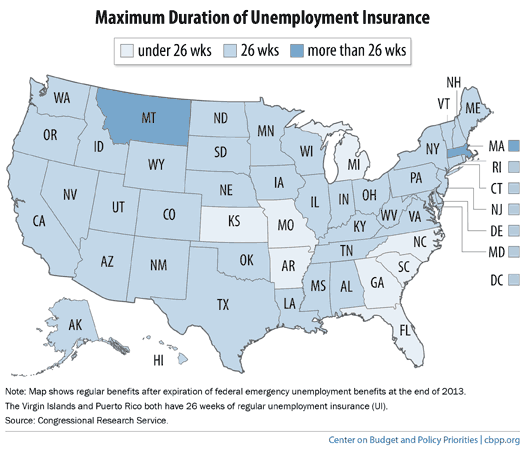It’s been more than two months since Congress allowed an extension of unemployment benefits to expire, cutting off 1.3 million Americans from the government assistance. President Obama asked Congress to renew the extension in his State of the Union address on January 28 but hasn’t hammered at the issue since then, leaving the negotiations to members of Congress. Senate Republicans have twice filibustered a bill to temporarily extend aid for the long-term unemployed, with a vote on February 6 falling one vote shy of the 60 needed for the measure to advance.
Senate negotiators are reportedly optimistic about the prospects for a deal on a six-month extension that would retroactively restore benefits. “We’ll vote again soon,” Senate Majority Leader Harry Reid (D-NV) tweeted Tuesday afternoon — but any deal struck in that chamber would still have to pass a Republican-led House, where Speaker John Boehner (R-OH) has said he’d be open to an extension as long the costs were paid for and the deal was accompanied by measures to create new jobs and boost the economy, like a green light for the Keystone XL pipeline. A senior aide to Boehner told The Fiscal Times that none of the deals considered in the Senate so far would satisfy the Speaker’s criteria.
Related: ‘Carolina Comeback’ Masks Long-Term Unemployment
As congressional negotiations have dragged on, the ranks of those long-term unemployed cut off from benefits has swelled to an estimated 2 million, including some 200,000 veterans, according to the left-leaning Center on Budget and Policy Priorities. More than 70,000 unemployed Americans fall off the rolls each week.
In the meantime, here’s the CBPP’s guide to the number of weeks of unemployment insurance benefits available in each state.
The long and short of it is that in most states, along with the District of Columbia, unemployed workers are eligible for up to 26 weeks of benefits. The exceptions to that standard, according to the Congressional Research Service and individual state Labor Departments, are: Massachusetts (up to 30 weeks); Montana (28 weeks); Arkansas (25 weeks); Michigan, Missouri, South Carolina (20 weeks); Kansas (20 weeks for claims filed as of this year); and Florida, Georgia and North Carolina, where the duration varies based on the unemployment rate. In North Carolina, the maximum number of weeks the unemployed can receive benefits is now 19. In Georgia, it's 18 weeks. And in Florida, the duration of new unemployment benefits for claims filed in 2014 is 16 weeks.

Top Reads from The Fiscal Times:




